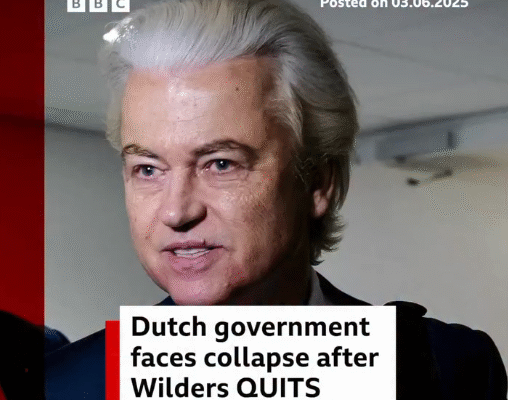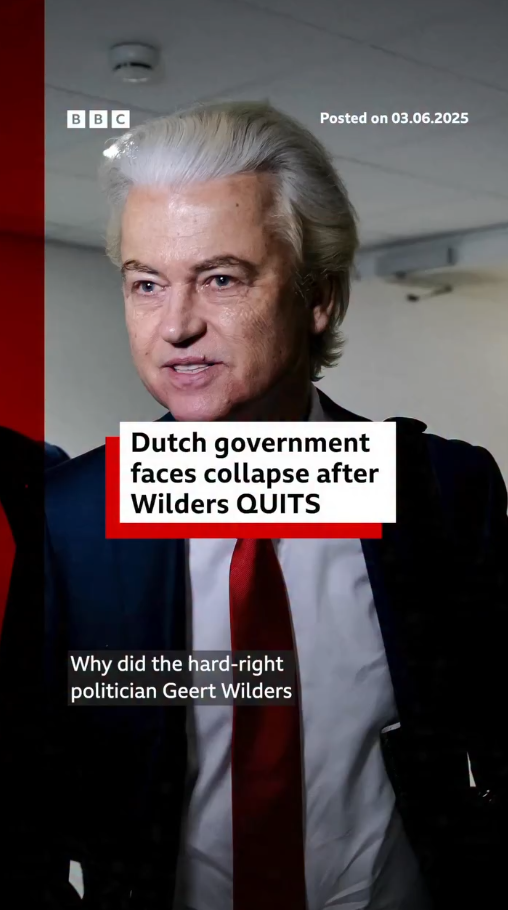
The Dutch government has collapsed after far-right politician Geert Wilders, leader of the Party for Freedom (PVV), announced his withdrawal from the fragile ruling coalition. The decision came less than a year after the coalition was formed, throwing the Netherlands into fresh political turmoil and setting the stage for yet another national election.
Wilders, a polarizing figure in Dutch and European politics, made the surprise announcement in The Hague on Wednesday, citing “unbridgeable differences” within the governing alliance. The coalition, formed in late 2024, was already viewed by analysts as fragile due to its ideological diversity and competing agendas.
“This is not the outcome we wanted,” Wilders said during a press conference. “But when compromises become betrayals of our core beliefs, we have no choice but to walk away.”
A Fragile Alliance from the Start
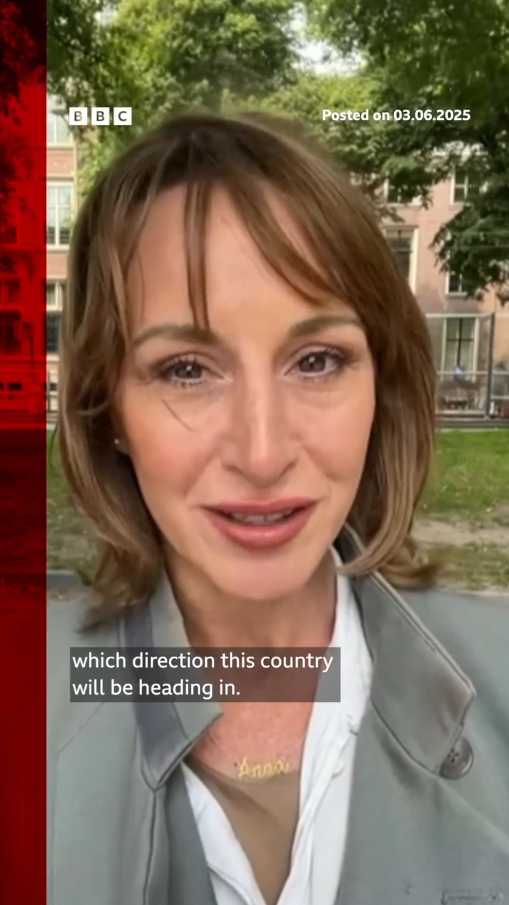
The coalition government, formed in December 2024 after months of tense negotiations, included a mix of center-right, conservative, and nationalist parties. The four-party alliance was led by a joint agreement involving the PVV, the center-right People’s Party for Freedom and Democracy (VVD), the New Social Contract (NSC) party, and the Farmer–Citizen Movement (BBB).
At the time of its formation, the coalition was widely regarded as an uneasy alliance. The PVV, known for its anti-immigration rhetoric and nationalist agenda, had won a shock victory in the November 2024 elections, emerging as the largest party in the Dutch parliament. However, due to concerns about Wilders’ divisive politics, he agreed not to seek the role of prime minister in order to facilitate coalition-building.
Instead, the coalition agreed on a compromise leader — a relatively neutral figure from one of the other partner parties — to lead the cabinet. Still, tensions simmered below the surface, particularly around immigration policy, climate legislation, and judicial reforms.
Points of Tension and the Final Straw
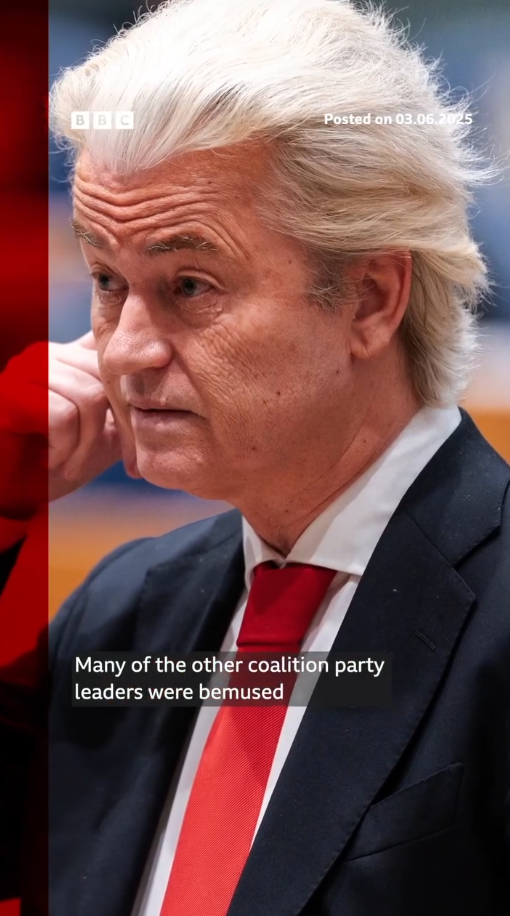
While all four parties managed to hammer out a governing agenda on paper, implementation proved more difficult. Sources within the coalition say that disagreements over asylum and immigration policy, particularly the handling of refugee intake and border enforcement, became a consistent flashpoint.
Earlier this month, leaked internal documents revealed that the PVV was pushing for stricter immigration controls than originally agreed upon in the coalition deal. According to insiders, Wilders demanded policies that would directly violate both Dutch constitutional protections and European Union treaties — a move that other coalition partners refused to endorse.
“The PVV kept moving the goalposts,” said a senior official from the VVD, speaking on condition of anonymity. “Every time we reached a compromise, they came back with more extreme demands.”
On Tuesday night, emergency talks between party leaders reportedly failed to reach a resolution, prompting Wilders to announce the PVV’s immediate withdrawal from the government. With his party’s exit, the coalition no longer holds a parliamentary majority, effectively ending its ability to govern.
Political Fallout and What Comes Next
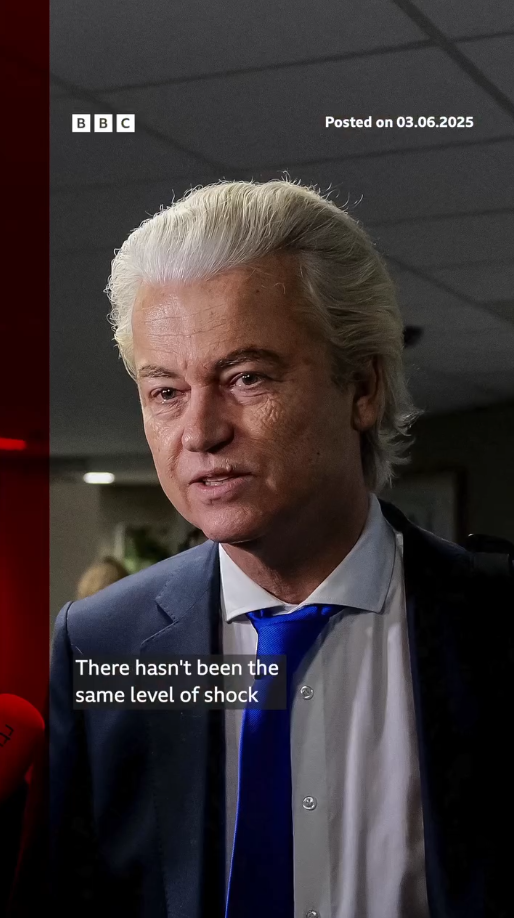
The collapse of the government has already triggered political fallout across the Netherlands. Caretaker Prime Minister Dilan Yeşilgöz, from the VVD, tendered her resignation early Thursday morning, stating that the current coalition was “no longer viable.”
“This is a disappointing moment for the country,” she said. “Our citizens expect stability, not infighting. We must now look ahead and prepare for new elections.”
King Willem-Alexander has accepted the resignation of the cabinet and is expected to appoint an interim government to oversee day-to-day affairs until elections can be held. While no official date has been set, political analysts suggest that fresh elections could take place in early autumn.
Reactions Across the Political Spectrum
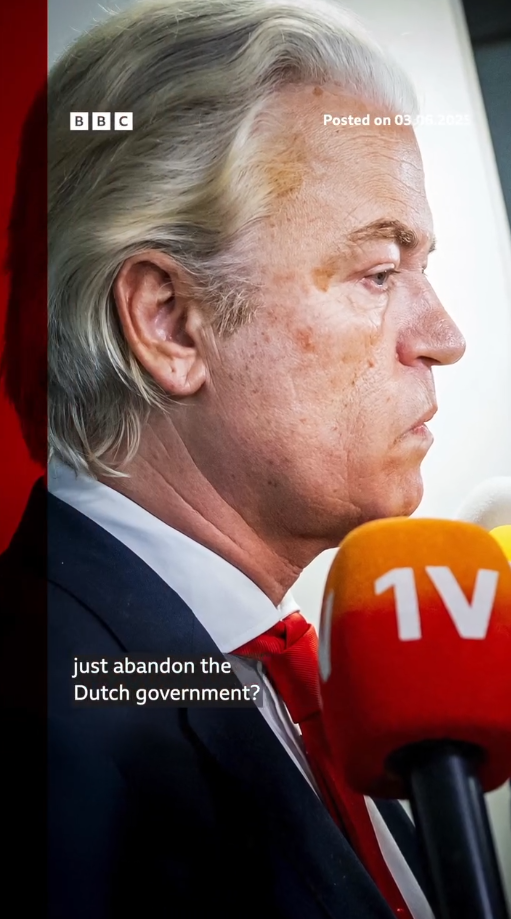
News of the government’s collapse has drawn strong reactions from across the Dutch political spectrum. Opposition leaders have seized the moment to call for a return to more centrist, consensus-driven politics.
Frans Timmermans, leader of the center-left GreenLeft-Labour alliance, said the collapse proved that “extremism and governance do not go hand in hand.”
“You can’t govern a country with slogans and scapegoats,” Timmermans said in parliament. “We need leadership that unites, not divides.”
Meanwhile, supporters of Wilders hailed his decision as a principled stand against what they described as “compromises that diluted PVV values.” On social media, the hashtag #StandWithWilders began trending shortly after the announcement.
European Implications
The fall of the Dutch government also has broader implications for Europe, where far-right parties have been gaining momentum in recent years. Wilders’ rise to power in 2024 was seen as part of a broader continental shift, with similar movements gaining strength in Germany, France, Italy, and elsewhere.
However, critics argue that the rapid collapse of the Dutch coalition illustrates the challenges far-right leaders face once in power. While they may perform well in elections by tapping into public frustration on immigration or economic inequality, governing in pluralistic systems often proves more difficult.
“The Netherlands has shown what happens when populists are handed the keys to government,” said political scientist Anke Visser of Leiden University. “It’s one thing to campaign on outrage. It’s another thing entirely to govern responsibly.”
A Return to Political Uncertainty
As the Netherlands heads into another period of political uncertainty, many voters are left frustrated. After years of coalition reshuffling and caretaker governments, public trust in political institutions continues to erode.
Analysts suggest that the upcoming elections will be a litmus test for Dutch democracy, potentially reshaping the balance of power once again. Whether the far right can maintain its influence, or whether the center regains its footing, remains to be seen.
For now, the collapse underscores the deep divisions within Dutch society — and the ongoing challenge of finding common ground in an increasingly fragmented political landscape.
